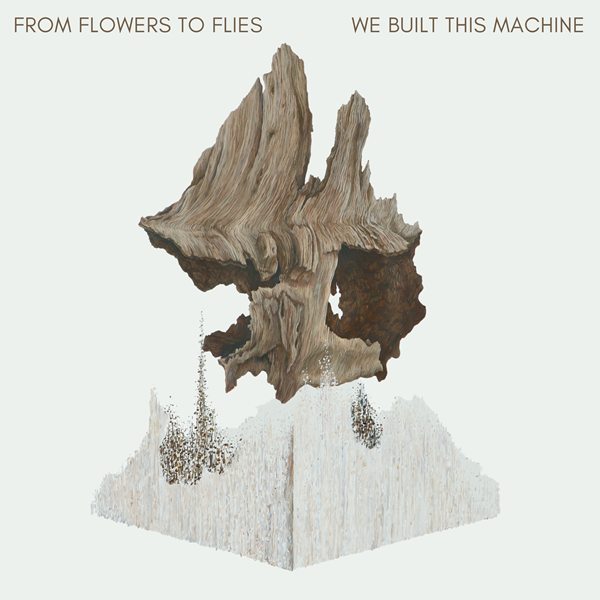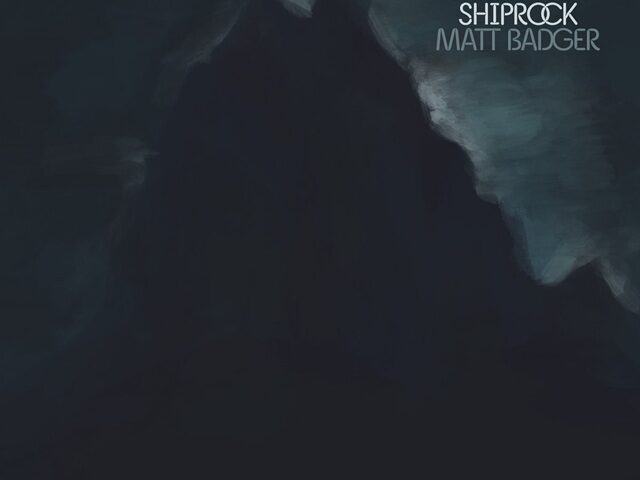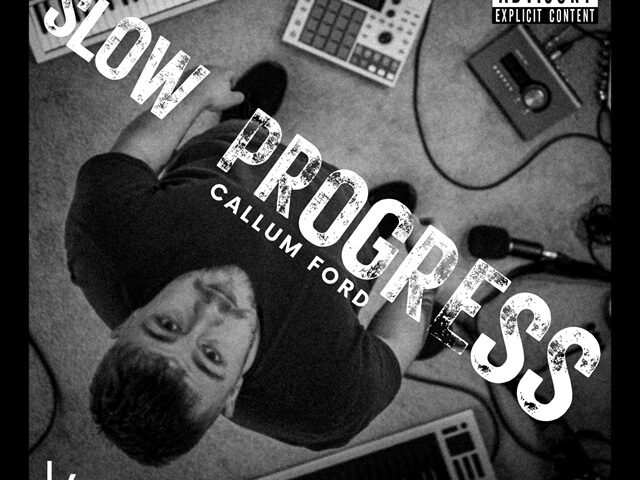
A darkly compelling and stylistically eclectic success, We Built This Machine is the debut album from California-based rockers From Flowers to Flies. Introspective explorations of anxiety, perseverance, and ennui captivate alongside the memorable songwriting and varied production. The brassy stomps and ensuing guitar jangles on “Signs” quickly showcase the band’s dynamic chops — meshing rock, chamber-pop, and prog-rock dexterity with seamless cohesion. Following the prologue’s orchestral prowess, “Signs” opens the album with a captivating fervency. A dynamic tonal range is conveyed, as well — especially as lonesome guitar twangs build into a striking vocal presence. Lyrical depictions of deception and hidden truths add aptly to the intrigue.
“Fog” represented the band’s debut single, and its more understated initial allure sets forth a grippingly climatic unfolding. Jangly guitar murkiness and twinkling keys combine with melodic qualities, as vocals reference a stillness that surrounds them — resembling a sort of peacefulness and reprieve, before being delightfully overtaken by snarling distortion. Although quainter in its twinkling qualities than the preceding “Signs,” “Fog” enamors with its steady bass/keys intertwining in the verses and erupting guitar flashes.
A darker, thunderous vigor stirs on “Powerlines,” where a throbbing post-punk bass-y lingering escalates into heavy guitar distortion and brassy spurts — aesthetically reminding of a cross between Madness and black midi. A sense of anxiety and foreboding shows here and also on the climactic “The Game.” Late-night synth injections and a buzzing bass envelopment drive grippingly into the “I don’t want to feel afraid,” vocal sequence — chilling with its plea into a mid-point textural eeriness.
“Glide” emphasizes a more grooving, emotive rock approach — eschewing distortion-heavy fervency for a nocturnal, jangly engrossment. “Looking around, walls are closing in,” the vocals let out, furthering consistent themes of anxiety and modern tumult. The organ-fronted “Contagion” follows, referencing a “future you won’t live to see,” and asking “how much damage can you do?” — bridging guitar-laden mystique and glimmering organs with gripping introspection on how one can make the most of their life.
Following a stellar, atmospheric instrumental with guitar and brass interplay in “Vamp Until Cue… Then Fade,” the consuming “Epilogue” favors a nostalgic synth-pop and new-wave sense of uneasy idealism. “A constant battle with anxiety,” plays with heartfelt appeal alongside quaint guitars and playful synths, with an erupting “this is an epilogue,” proclamation rousing as heavier guitars infuse. The epilogue/finale is a commanding success, aptly closing out an album whose themes of perseverance, anxiety, and modern ennui linger with artful impact.





